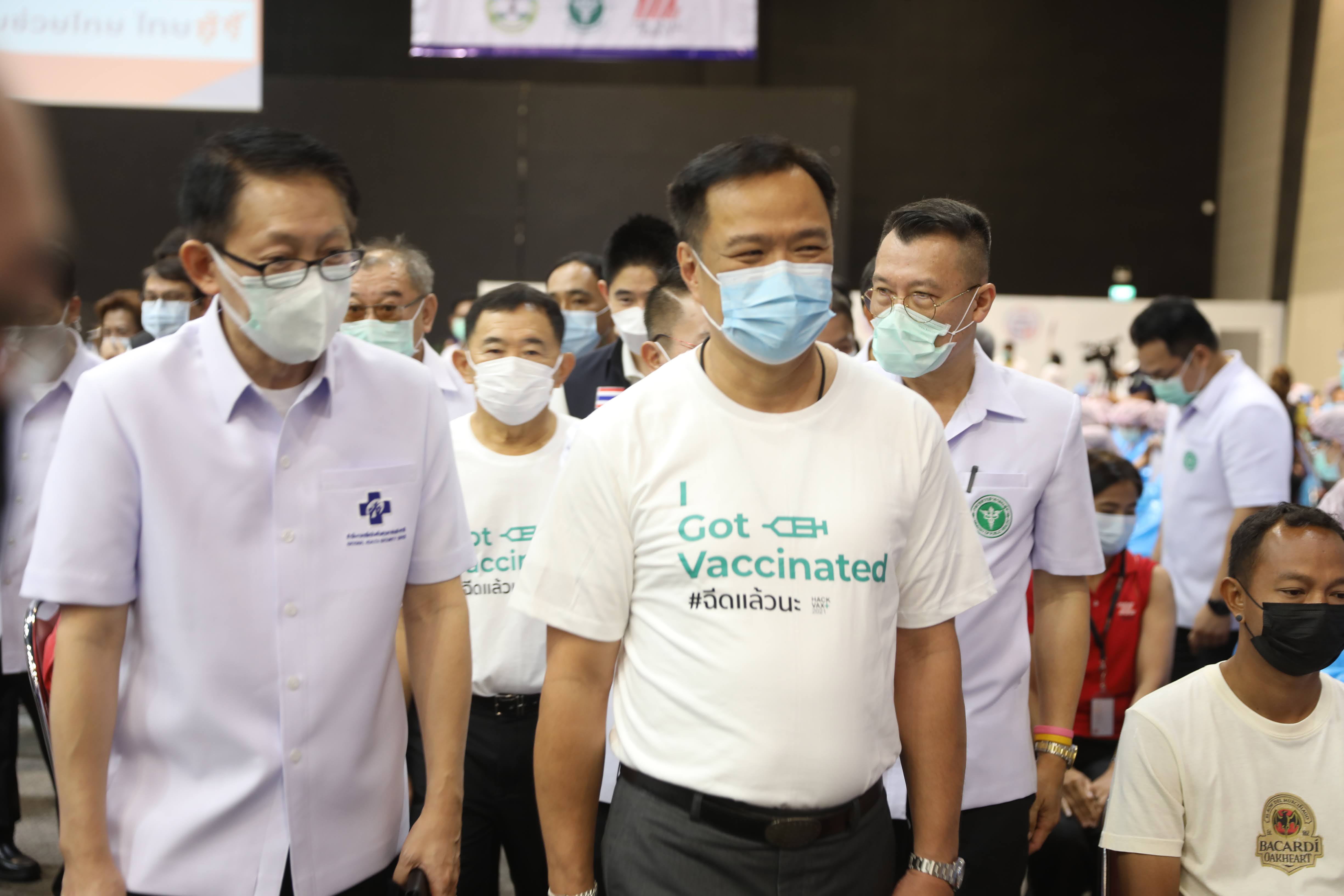
- Home
- DescriptionNews
National Health Security Board financially supports Thailand’s fight against COVID-19 crisis, provides healthcare to all Thais

National Health Security Board financially supports Thailand’s fight against COVID-19 crisis, provides healthcare to all Thais
Anutin Charnvirakul
Deputy Prime Minister and Public Health Minister
Cooperation from all parties is crucial for leading the country to survive the current COVID-19 crisis. As a Deputy Prime Minister and the Public Health Minister, I also have another important role to serve as the chairman of the National Health Security Board (NHSB) who together with other members of the board is responsible for managing the National Health Security Fund, also known as the “Gold Card Fund”.
Although not the type of work that involves direct management of healthcare services in the front line of the country’s fight against the outbreak, this specific duty of mine deals with supporting all frontline healthcare workers -- both public and private ones -- to be able to maintain the good quality and standards of their services even while encountering several challenges associated with the COVID-19 outbreak.
Over the past two years, during which the country has been struggling to cope with the COVID-19 situation, I have observed great determination and unity among all members of the NHSB who represent all sectors of the society. Strong determination to work to help patients infected with COVID-19 gain sufficient access to necessary healthcare services during this major public health crisis has as well been observed in the National Health Security Office (NHSO) that has been working side by side with the NHSB to implement the government’s policy and aim to take best care of all people while fighting to contain the outbreak.
When the COVID-19 outbreak in Thailand began in early 2020 the NHSO promptly resolved to set aside budget for funding additional healthcare services associated with the occurrence of the new coronavirus outbreak in the country. By April last year when the number of new infections rose to about 180 per day, the NHSO was prompted to adjust its budgetary plan for funding the fight against COVID-19 to ensure funds would be sufficient. It had at that time added 9.8 billion baht more, which came from the government’s decree authorizing the Finance Ministry to apply for loans to fund efforts to mitigate COVID-19’s social and economic impacts (the 3rd Loan Decree). The loan decree was approved by the cabinet and endorsed by the House of Representatives.
After receiving extra funds under the loan decree, the NHSO has attempted to expand necessary healthcare services as much as possible such as by negotiating with providers of COVID-19 antigen tests to lower the reimbursement rate to 500 baht per test from previously 1,200 baht per test. The reimbursement for arranging COVID-19 vaccination, meanwhile was adjusted from previously 20 baht per jab to 40 baht per injection, in order to boost work morale among healthcare workers. More laboratory tests necessary for diagnosing and treating of a rare but sometimes fatal blood clotting reaction called Vaccine-induced Immune Thrombotic Thrombocytopenia (VITT) are also covered by the NHSO. So is the preliminary financial compensation for the people suffering adverse events following COVID-19 vaccination, which is provided with an aim to allay public fears while the country needs to ramp up COVID-19 vaccination in order to reach heard immunity against the outbreak with the help of a mass vaccination programme. Other support the NHSO is also offering includes the provision of medical equipment and medications required for the treatment and care of COVID-19 patients.
The NHSO is also cooperating with other agencies in locating available hospital beds for new COVID-19 patients who have difficulty in finding a hospital bed on their own. The NHSO’s hotline 1330 is now dedicated to handling calls regarding hospital bed locating, with additional coaxial cables added to improve the hotline service’s efficiency. On top of that, the NHSO has also launched a proactive service system to ensure coordination between public healthcare providers and their private counterparts in handling patients infected with COVID-19. And to improve the speed of reimbursement for healthcare services offered by these providers, for instance, the NHSO has adjusted the payment schedule to every 15 days from previously once a month. This change pays off. Delays in healthcare services and long waits for a hospital bed have improved significantly afterwards.
Aside from these hospitals that are taking care of COVID-19 patients, the Public Health Ministry has also set up Busarakam field hospital in Muang Thong Thani in Nonthaburi province to accommodate patients whose conditions are classified in Green and Yellow groups (with mild to moderate symptoms of the disease respectively). With a capacity to provide at most 5,000 beds, the field hospital now operates 2,000 hospital beds. It is equipped with a sufficient number of medical and healthcare staff, good healthcare system, and necessary facilities and equipment such negative pressure rooms, isolation rooms and emergency rooms. Medical teams working at the field hospital include ones from the faculty of medicine of various universities.
As for the COVID-19 vaccination service being provided nationwide, the NHSB, the ministry and the NHSO are working closely together to ensure the vaccination programme run smoothly. No matter what problems arise, these parties promptly taking action in order to help the people as much as they can during the crisis. Their hard work will pay off and earn Thailand’s health system recognition for its efficiency.

